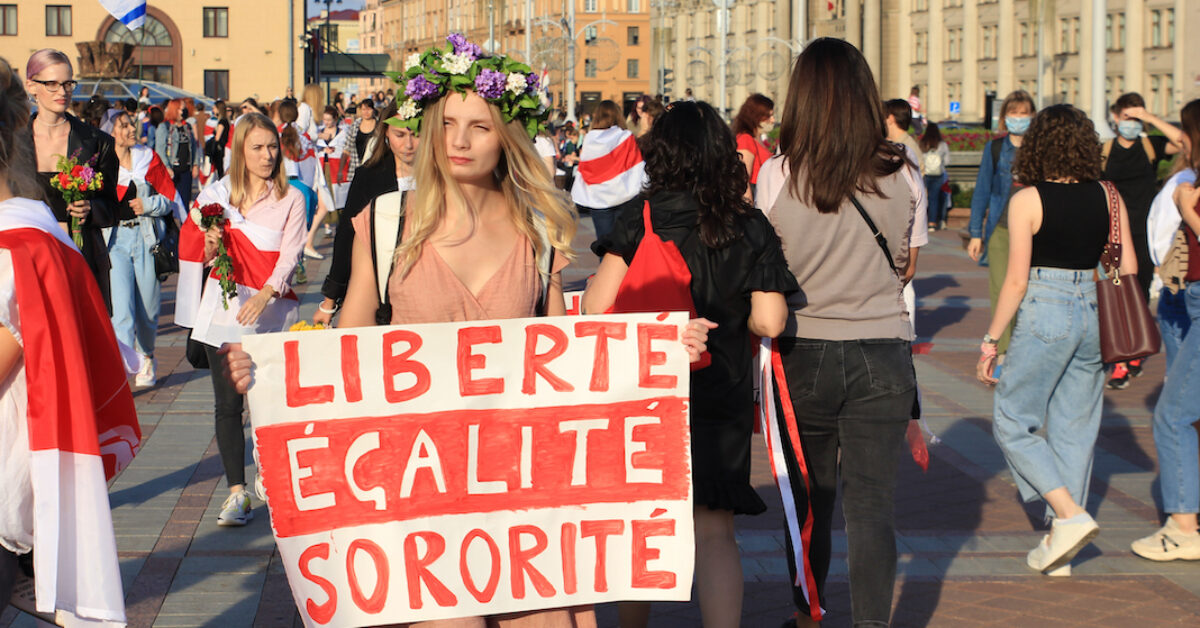In 2019, French artist Angèle released a music video for her song “Balance Ton Quoi” in response to the French #Balancetonporc movement–France’s equivalent of #MeToo. The video currently has ninety-four million views on YouTube and has been hailed as an ingenious way to denounce the sexism and the misogyny that women face every day.
After the sexual assault allegations against American film producer Harvey Weinstein and the rise of the #MeToo movement in the U.S., it wasn’t long before other countries started reckoning with their own history of sexual assault. Thus, #Balancetonporc was created in France to show support for the movement and to affirm how ubiquitous the problem of sexual misconduct was in other parts of the world. Created by Sandra Muller in 2017, the hashtag raised awareness about the prevalence of sexual assault cases in France, but four years and another hashtag later, France is still grappling with the implications of sexual misconduct and what it means for both the victim and the perpetrator. The recent hashtag that has been raising awareness for sexual assault allegations on the campus of The Paris Institute of Political Studies (commonly referred to as Sciences Po) is #Scienceporcs. The hashtag was created by a current student, Anna Toumazoff, who “wanted to put an end to the complicit silence of all these sexual assaults.” The results of her efforts are that preliminary investigations have been opened in Toulouse and Grenoble. In addition to this, the justice department at Strasbourg has been involved in proceedings to ensure that there will be no future need for hashtags to bring awareness to the issue of sexual assaults at academic institutions.
One thing that hashtags still have not been able to do is fundamentally change how some prominent figures in French society approach sexual assault allegations. In an address to the nation about combating separatism, President Emmanuel Macron mentioned that social theories being imported from America are a threat to the republic. This rhetoric encourages French citizens to see the movement against sexual harassment as an exaggeration by feminists who have been indoctrinated by liberal minded ideology from the United States. President Macron is not alone in his opinions, and it was not long after the French caught wind of a storm brewing in the United States with the #MeToo movement that a group of women–spoken on behalf of by actress Catherine Deneuve–claimed that men were being attacked by the movement and that it was fueled by “a hatred of men.” Deneuve has since apologized for any unintentional belittling of sexual assault victims conveyed by her signing of a petition that denounced the #MeToo movement, and has distanced herself from petitioners that disregard the testimonies of victims.
The sentiments that have since been raised by #Scienceporcs have been overwhelmingly different from that of #Balancetonporc, and it shows a change in the way that the younger generation in France is approaching sexual misconduct. #Scienceporcs has brought to light how entrenched sexual misconduct is in the history of Sciences Po. Both the director and Olivier Duhamel, a well-known professor at the institution, have resigned following the publication of La Familia Grande, an autobiography by Camille Kouchner detailing how Duhamel assaulted her twin brother and escaped repercussions… until now.
Even President Macron has said on the matter that “the silence built by criminals and cowardice is finally exploding,” and he introduced a bill to make penalties for sexual misconduct, especially towards minors, more severe than they previously were. The bill was passed by unanimous vote in April. The aim of the bill was to make penalizing sexual misconduct less ambiguous and some of the changes resulted in a definitive age of consent set at 15 years old, harsher sentencing (up from seven years to twenty years) for infraction of the stipulations of the bill, and a clarification of the definition of rape that does not have to include coercion for a stricter sentencing to be applied.
Despite the negative coverage that the #Balancetonporc and #SciencePorcs movements have received in France, there have been cases of French institutions beginning to understand the legitimacy of the sexual assault problem in France. Just last year Vanessa Springora published her memoir, Consent, which delivered excruciating details about her experience with the sexual predation of the acclaimed French writer Gabriel Matzneff. As a result of her writing, Matzneff was dropped by his publishers and had an investigation opened against him. It is in this way that a public “cancelling” can be used to hold individuals accountable for their actions. So, while hashtags may be a great way to increase public awareness, it seems there is a role that influential members of French society (in professional and personal spheres of life) must play to recognize the legitimacy of sexual assault claims in France.
Hashtags have encouraged conversation among the French, and have forced politicians to understand how women are being affected by the complacency of the government and academic institutions. The founder of #Scienceporc, Anna Toumazoff, told BBC Paris correspondent Lucy Williamson that, “Victims have always tried to talk, actually. The difference now is that, because of the hashtags and social networks, people are obliged to hear and to answer. That’s the difference.”



